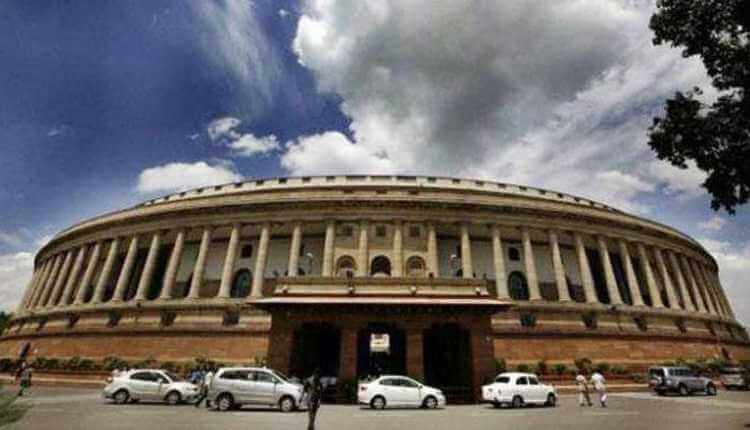In order to contain the imbalance in the economy caused by the nationwide lockdown in India due to the spread of COVID-19, on 3rd April 2020, the Transaction of Business Rules was amended. It altered the functions of the investment and growth cabinet committee and the employment and skill generation cabinet committee to confer both the committees with wide decision making powers.
Significance of Transaction of Business rules development:
Amended powers of investment and growth cabinet committee include to take up sector-specific reorientation and other necessary changes in fields of export promotion, import-substitution, accelerating capital inflows, etc.
While the functions of the committee on investment and growth include taking up various measures to assist investment and further growth by concentrating on sector-specific reorientation and other measures aimed at boosting investment and growth.
The amendment is also focused on increasing the workforce and participation by people to tackle the increase in unemployment. A special focus has been put on encouraging and promoting the inclusion of women workers.
Accordingly, while exercising its earlier powers and functions, the committees will now work forth to meet the essential arising requirements of the economy. The drop in GDP and growing unemployment as the byproduct of the lockdown calls for the focus of the Government to take necessary measures to aid the fractured economy of the country.
Its objectives and purposes:
The main objective of the Act is to establish various committees and ministries for forming and reviewing policies on behalf of the Government, especially in terms of business allocated to these, respectively.
It assists the Government in the process of making decisions while keeping in mind the necessity of coordination among the various ministries to smoothen the process.
Salient features of the Act:
The Government of India (Transaction of Business) Rules 1961 has been framed under Article 77(3) of the Indian constitution, which provides that the President can make rules for the convenient transaction of business of the Government. It also provides for the allocation of business among the various committees.
Some of the silent features of the Act are-
- Having focus on providing aid for employment and skill generation.
- A total of eight cabinet committees are established under this Act.
- Mainly concerned with appointments, security, and economic affairs of the country.
- The Ministry of Law is to be consulted for legislative proposals, forming rules and orders, and the creation of contracts on behalf of the Government.
- The Prime Minister has the power to amend the First Schedule, which provides for the allocation of business among various committees. He can add or reduce the numbers of Committees as well as modify their functions.
- Functions of various committees have been laid down in the Act.
Critical analysis:
The Roles of the cabinet committees on Economic Affairs include a review of the economic status, problems, and methods of evolving a better economic policy framework. It also deals with controlling the price of industrial raw materials, products of agriculture, and various essential commodities.
The department also has power for making investments of more than Rs 1,000 crore, while also dealing with forming policies on industrial licensing. It also has the responsibility of reviewing the development in rural areas by looking into the Public Distribution System.
Some of the main essential functions of the department are-
- To take effective measures for investment in public sectors.
- To review activities related to development in rural areas, including small and marginal farmers.
- To look into the availability of essential commodities like agricultural commodities and to take effective measures in case of shortage. This is an essential function during the lockdown to see that people do not face a shortage of essential commodities.
- To review and take according to measures regarding enforcement of the Essential Commodities Act, 1955 and other similar statutory provisions;
- To take up measures for efficiency and effectiveness of the Public Distribution System and regulate the prices of commodities distributed through this system.
- To take up issues concerning the World Trade Organization.
Under this Act Rule 12 of the Government of India (Transaction of Business) Rules, 1961, is considered to be essential and confers upon the Prime Minister to take up or introduce regulations without the approval of the Cabinet, his discretion.
This specific Rule was recently applied in the state of Jammu and Kashmir with the reorganization of it into the Union Territories of Jammu and Kashmir and Ladakh on October 31, 2019. The division was issued under Rule 12.
Later it was used in the case of Maharashtra when there was a conflict regarding the election results between the BJP, Congress, Shivsena, and NCP. Following the dispute with no certain resolution, the President’s rule was imposed on November 12, 2019. However, it was later revoked under Rule 12 of the Government of India (Transaction of Business) 1961.
The various provisions provided under this Act have been used in various matters, mostly concerning matters related to the withdrawal of an office member or memorandum or signing of MoUs in the past.
Conclusion:
With the change in times and the circumstances, it is necessary for the Government to take necessary actions and measures to cope up. Reforms and taking up of new policies while conferring broader powers to the committees is essential to control the economic situation of the country amidst the lockdown.
Thus, the Government of India (Transaction of Business) Rules 1961 provides it to be essential to make reforms and meet the needs and deficits created during different times.


